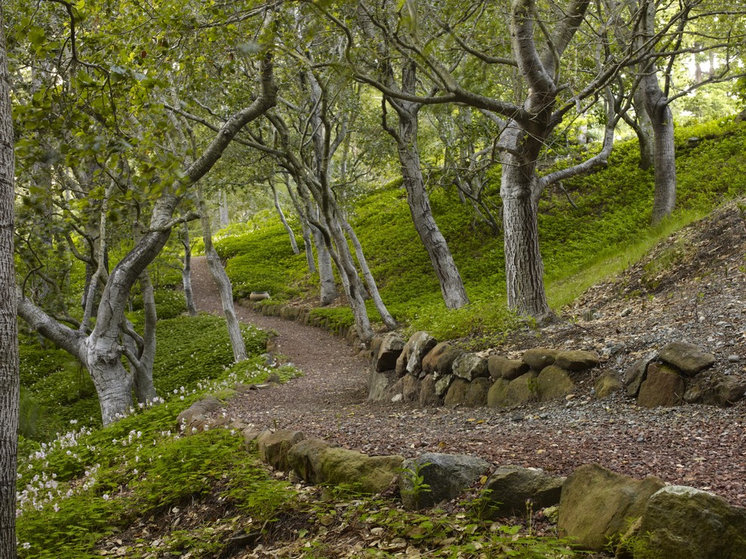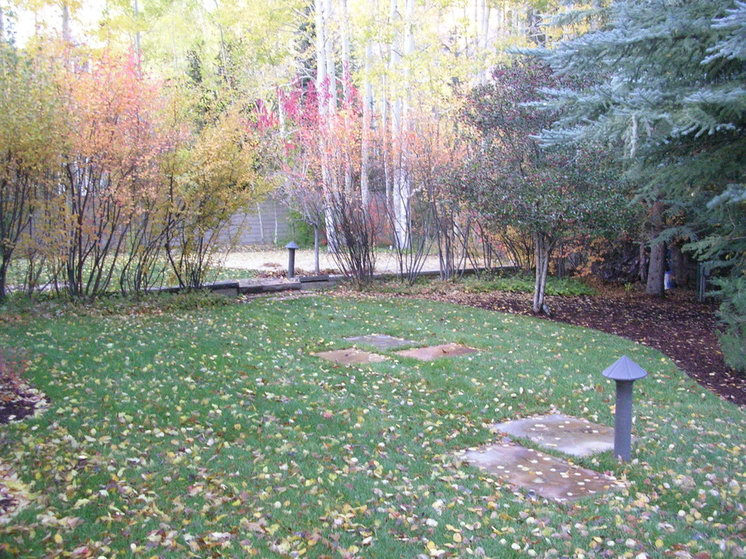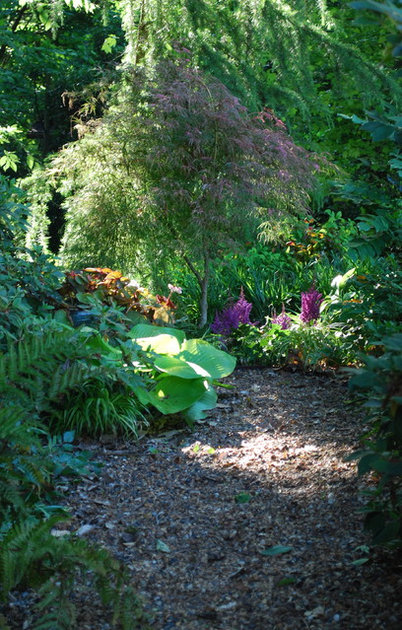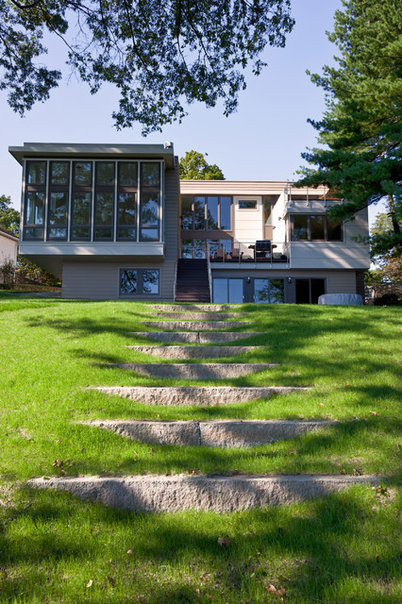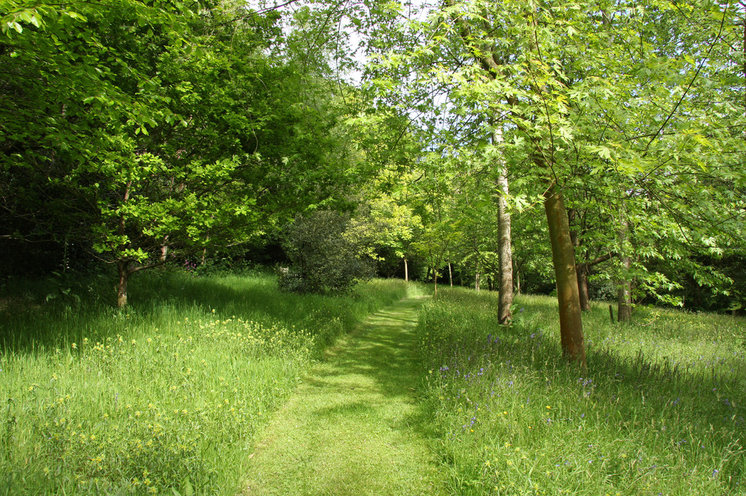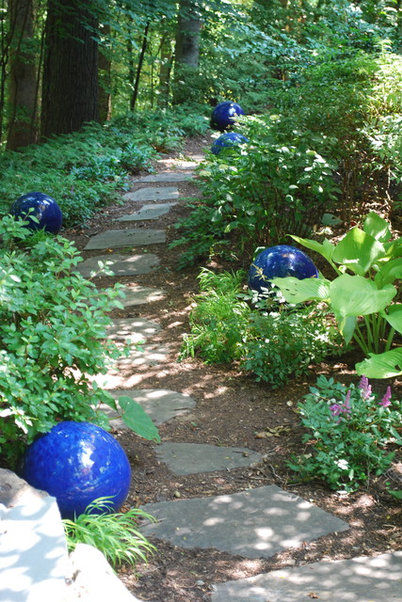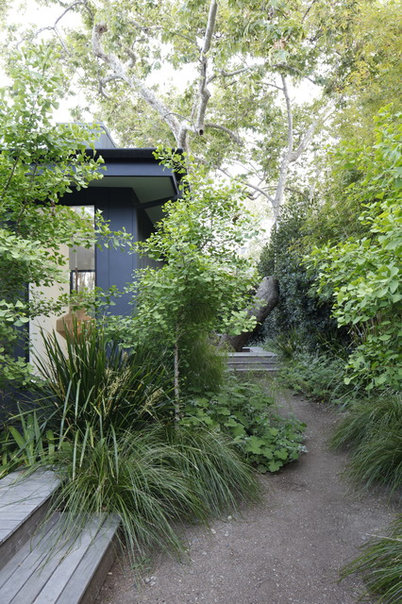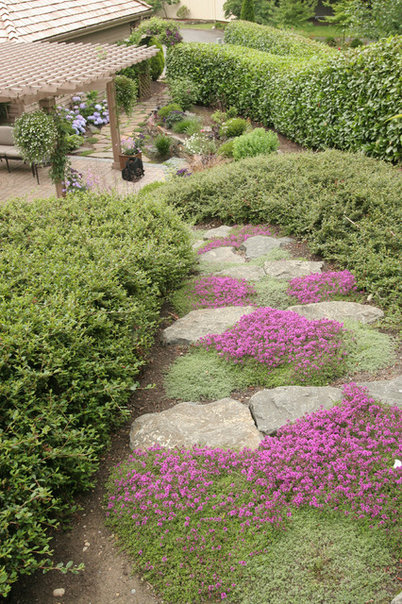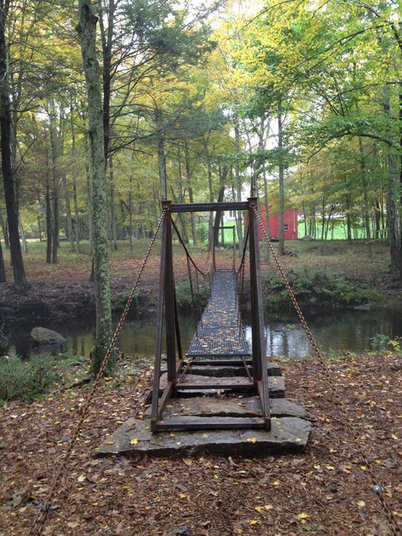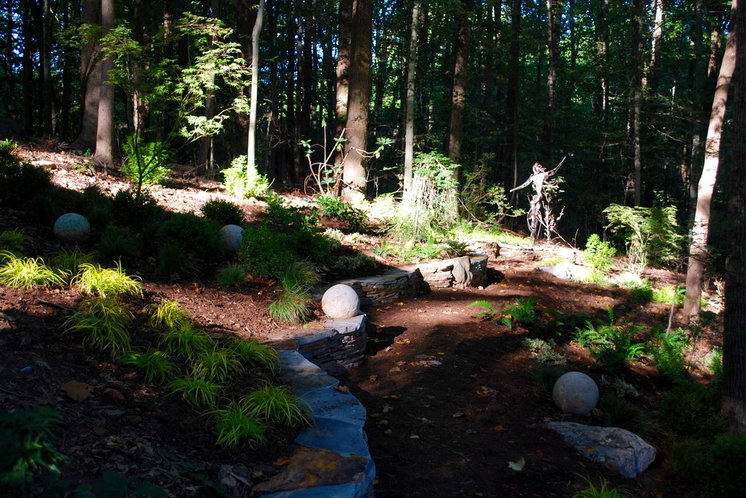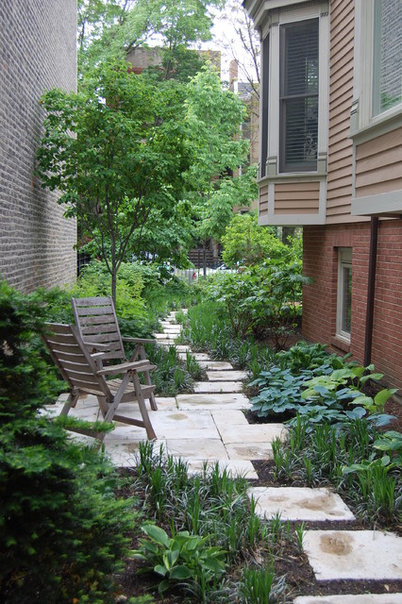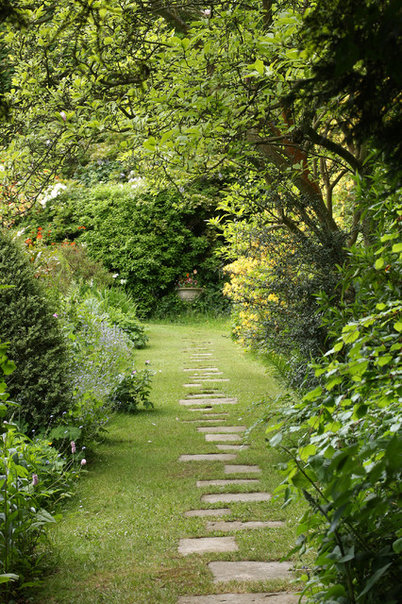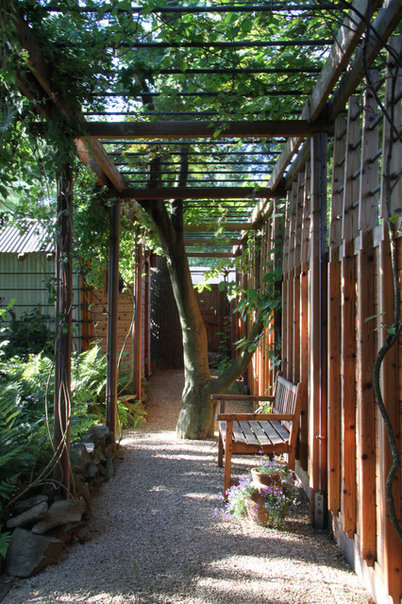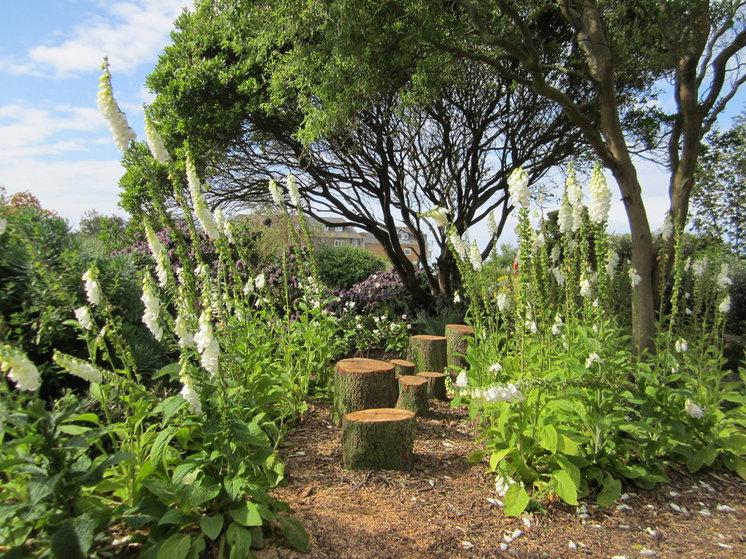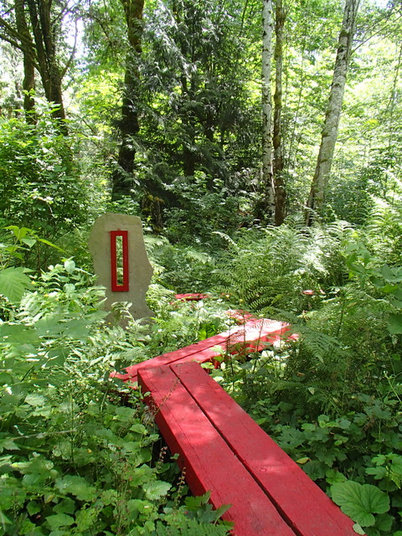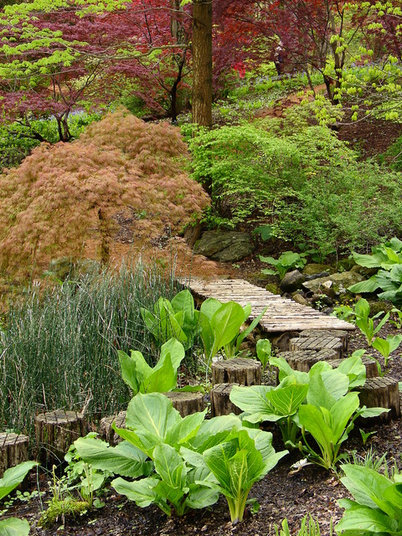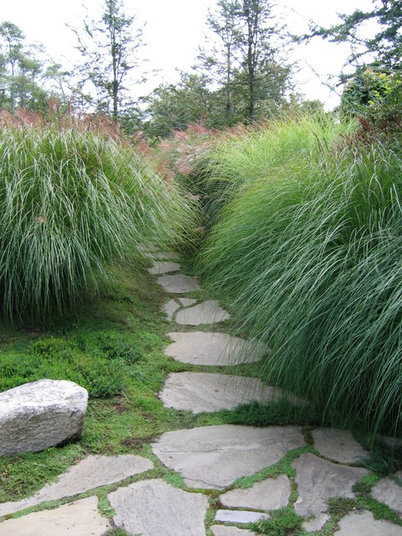“Even if you don’t have a large area to work with a path can add texture and visual interest to your yard and landscape.”
Denise Buck & Ed Johnson – DC Metro Realty Team
The best aspects of life are sometimes off the beaten path, and the same could be said about your garden. While brick paths and concrete driveways are certainly functional, necessary and expected, don’t overlook the possibility of creating or rejuvenating secondary paths that forge a strong organic relationship with the land and tell its story. With innovative design and proper planting, any backyard can provide the place and the experience, even if the path leads to that secret spot behind the garage, or simply to nowhere in particular.
1. “Not all those who wander are lost,” J.R.R. Tolkien wrote. Wandering is good for the soul. Paths play a crucial role in the art and process of wandering. While major paths and sidewalks need to be paved to be safely navigated, secondary paths need not be. These paths may not be lit at night, as their usefulness may be limited to daylight, or they may be navigated by flashlight or candle after dusk. They may flirt more with curves and shrubs than the average path, but flirting evokes emotion. This is what makes these paths special and worthwhile.
The path shown here embraces its sense of place and begs to be explored. The best paths embrace their environment. With its curves and unknown destination, this path calls to those who dare to wander far enough to discover its hidden story.
2. There are times when the suggestion of a path is all that is necessary. In the landscape shown here, strategically placed groups of flagstone hint at a pathway through a lawn. This works because they lead the eye; where the eye goes, the body follows and the journey commences.
3. Wanderers know that a path doesn’t have to lead to anywhere in particular. This free-form gravel path, barely 25 feet long, has a Japanese maple at its end and could easily fit into an average suburban yard. For those who walk there in the late afternoon, this path partners with the setting sun to offer a 15-minute light show that is nothing short of spectacular. And for the wanderer, that is more than enough.
4. In this landscape, the honed stone stair treads bring an element of antiquity to a very modern home. Their rhythmic placement has a meditative quality that makes the act of ascending this hillside path almost ritualistic. The depression in the center of each step gives the garden visitor both sensual and comforting feelings.
5. Paths can be mown through meadows. Additionally, many types of sedge (Carex spp., USDA zones 4 to 10; find your zone) can be planted, mowed and walked on. Some sedges are extremely drought-tolerant, an important concern in many parts of the U.S. The path’s configurations are easily changed. Paths of this type can trigger memories of childhood exploration.
6. Unused secondary paths can be rejuvenated. This all-but-forgotten path was given new life with the introduction of five ceramic spheres, placed rhythmically along its curves. In a garden, pattern can establish a rhythm that sparks a connection with our internal rhythm, whether it be our pulse or that song that plays nonstop in our mind. This is the reason you feel so comfortable in certain gardens: their rhythms speak to yours.
7. This Los Angeles garden could be found in any large city where land and privacy are precious commodities. A path such as this could wrap around any building, leading to that small private garden forged from a useless space behind a garage. Multitextured plants spilling over into an organic path create the sense of a journey.
8. An ascending path formed with raw stones that are partially obscured by ground covers begs to tell its story; perhaps this one leads to a sitting area on the highest point of the property. The highest point is a place of power, and sitting there after a hard day at work is a perfect opportunity to recharge. In the animal kingdom, the leader of the flock always sits highest in the tree.
9. Rustic bridges always kindle feelings of mystery and exploration, and they frequently transport us mentally back to the simpler times of childhood. The bridge shown here is no exception. An impromptu path leads to the bridge, continuing on the other side of the creek.
10. The path shown here is mulched with commercially available double-hammered hardwood. The serpentine stacked-stone wall, somewhat reminiscent of Andy Goldsworthy’s installation at Storm King Art Center in New York’s Hudson Valley, provides order similar to how a hard margin provides structure to a paragraph. The pathway’s right-hand side playfully flirts with the surrounding woodland while embracing its negative space.
11. This paver pathway leads to a postage stamp-sized patio between buildings, then continues on the far side. A tight planting scheme creates the illusion of a forest right in Chicago. Two chairs may not be enough for a party, but they’re certainly enough for a memorable conversation.
12. The rustic, almost primitive placement of these steppingstones lends an air of antiquity to this secondary path. Their offset pattern is contemplative, giving the path a mystical sense similar to a labyrinth.
13. A tree trunk intersects and interrupts this Philadelphia path. Its unexpected placement and sculptural form elevate it to the status of living art, and the thoughtfully placed nearby bench offers the perfect place for brief contemplation.
14. Who says paths can’t be fun and gardens are not for children? This raised path made of cut logs is a thoughtful way to engage those children who don’t seem to mind an occasional skinned knee. The vertical flower inflorescences add to this garden’s jubilant nature in a way that prostrate ground covers and weeping conifers couldn’t.
15. Here we see another raised path, this time taking the form of a narrow boardwalk. It’s in an open space between a forest canopy and undergrowth, and the visitor is suspended so as to appreciate the fullness of the forest. This path’s narrow width forces visitors to walk singly. On a philosophical level, this speaks to the fact that we enter and leave this life alone and that our journey is, in reality, our own.
16. This New York garden path incorporates the best aspects of the former two gardens. Made of vertical logs, it leads to a simple, narrow bridge. The palette of large and colorful foliage creates a sensory experience for those who take the challenge. The best gardens are cognizant of their audience and immerse their visitors in an unforgettable experience.
17. This narrow path deliberately slows visitors and forces them to interact with the plants. Don’t underestimate the immense value of that branch that grows just a little too low or long and extends into the personal space that a path generally provides. A good gardener recognizes its tactile importance and purposefully leaves it in place. It only looks serendipitous, and looks can be deceiving.
Originally appearing on HOUZZ, by Jay Sifford
